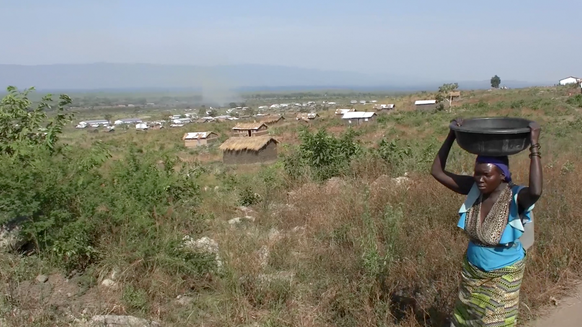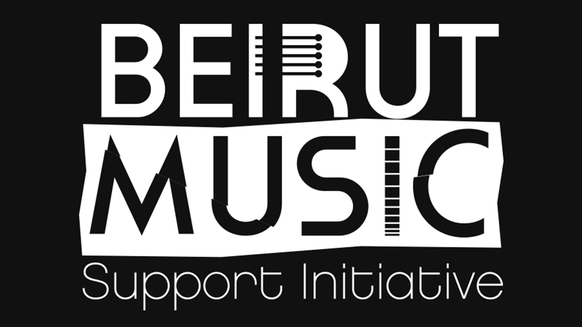Our Annual Report: Innovation in Times of Crisis
June 15, 2021
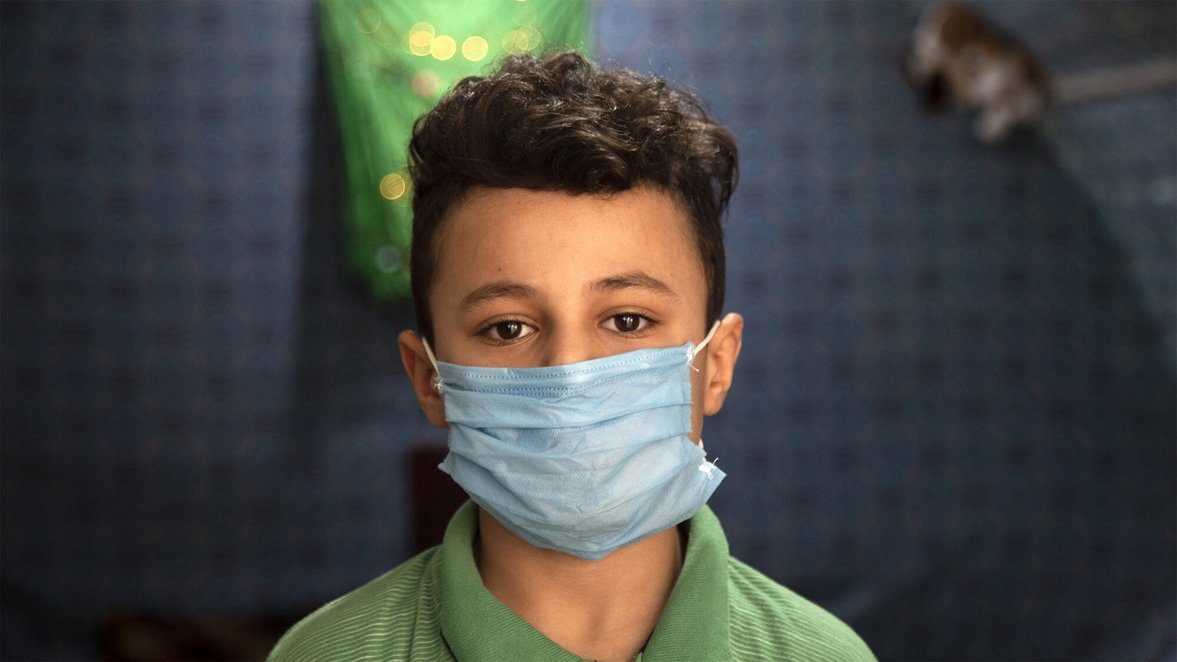
War Child in 2020
2020 wasn’t only the year of the pandemic. In the midst of COVID-19, a rise in extreme weather events and a series of unprecedented crises including the explosions in Beirut, War Child worked tirelessly to adapt our programmes and put our new ‘Fast Aid’ framework into action. Find out how we were able to reach a record number of children through this framework in our new Annual Report.
War Child met the urgent needs of 293,681 children and adults over the course of 2020. Through our COVID-19 emergency response, we were able to reach some 5.9 million.
We delivered remote education and child protection among underserved communities in 16 countries. In the occupied Palestinian territory, we harnessed everything from WhatsApp to social media to provide psychosocial support and stress reduction tools to children and families living in isolation.
Despite major challenges to our research studies, both staff and participants demonstrated endless flexibility to maintain our promise to children. The successful pilot of our Community Case Detection Tool (CCDT) with fisherman communities in eastern Sri Lanka was one such highlight. Follow-up interviews with youth, caregivers and community members were conducted entirely online.
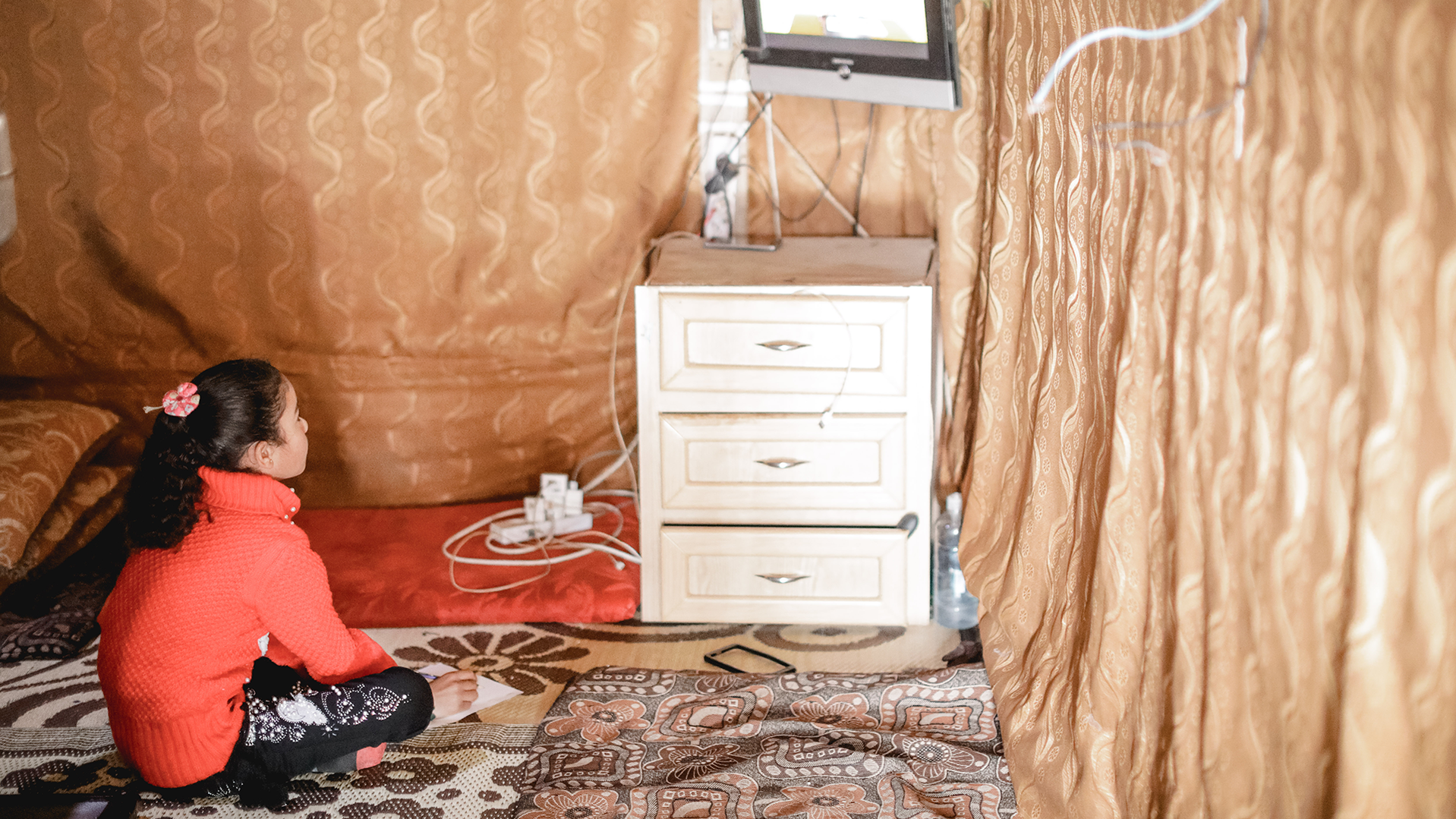
Through our COVID-19 emergency response, we were able to reach some 5.9 million children and families
Photo: Ralp Dargham
Reaching Children Where They Are
The innovative nature of our award-winning EdTech programme Can’t Wait to Learn proved vital in our ability to adapt in times of crisis. In Lebanon, we enabled access to educational content via mobile phones, TV sets and USB sticks - and delivered hundreds of tablet devices to children at home.
A fresh focus for War Child - we worked with new and existing partners to protect strained food and sanitation resources and introduce COVID-19 awareness-raising and water, sanitation and hygiene components - all in line with World Health Organisation (WHO) guidance. With the help of local celebrities such as Afrobeat star Check-B Magic in South Sudan we took our message over the airwaves - reaching many more children than would have otherwise been possible.
These represent just a few of our achievements in 2020. Find out in full how we shifted gears and rallied the international community together in real-time.
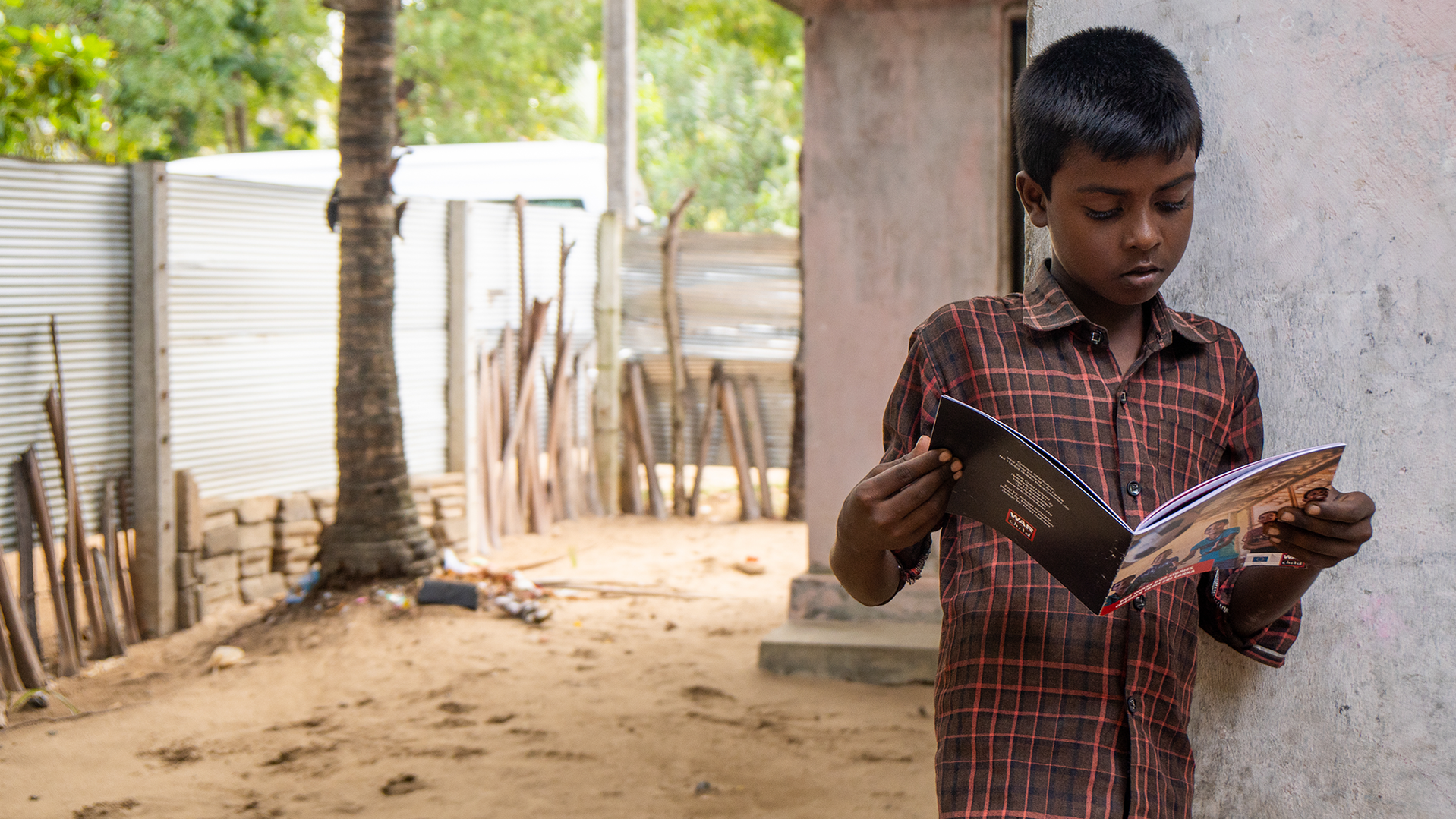
In eastern Sri Lanka we were able to successfully pilot our Community Case Detection Tool (CCDT)
Photo: Marcel van der Steen
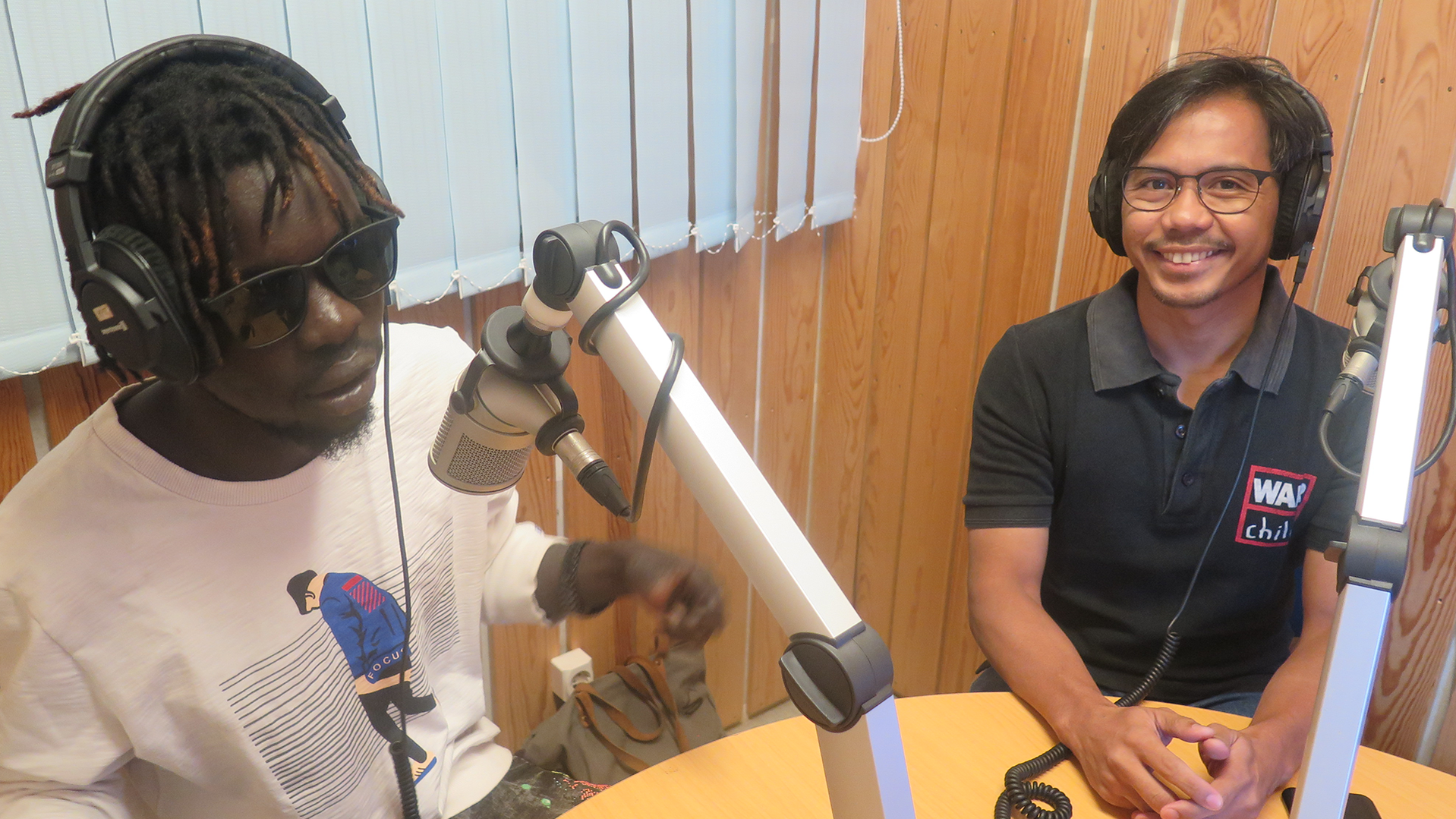
Local celebrity Afrobeat star Check-B Magic in South Sudan helped take our message over the airwaves
Photo: War Child
Facing a New Era of Humanitarian Crisis - Together
The coronavirus pandemic has exacerbated many grave threats to the safety and wellbeing of millions of children worldwide - particularly those already living with the effects of armed conflict. The need to innovate our practices and expand our reach is therefore more important than ever.
True to word - 2021 will see significant effort undertaken to both strengthen and expand our global network of individuals, partner organisations and governments to bring quality programming to scale wherever urgent needs arise. Our revised advocacy ambition will support these efforts - with a specific focus on data collection as a means to reveal the scale of the youth mental health crisis as well as an accelerated call for free and fair access to the COVID-19 vaccine.
